You might be washing the dishes when all of a sudden brown water comes out of the faucet and makes you wonder what causes it. Of course, you want to immediately figure out what causes discoloration in your water and find out if it is safe to use or not. In this article, we will share the different reasons why well water turns brown all of a sudden. Read on to find out more about the topic.
Why is my well water brown all of a sudden? There are different reasons why well water suddenly turns brown. These reasons include the type and age of the well, surface infiltration, iron or manganese contamination in the water, drop in water level, well collapse, or rainfall. You can do regular maintenance as well as water testing to check any chemical balance or unwanted contaminants in the water. By doing a water test, you can also find out the cause of the problem, the extent of the problem, and the possible solutions or treatments that you can do.
Was there ever a time when your water get discolored and turned brownish? Changes in water clarity can happen overnight. If brown water flows from the faucet which comes from your well, you must learn the cause of the problem as soon as possible. To help you get started, we have shared different reasons why well water suddenly turns brown.
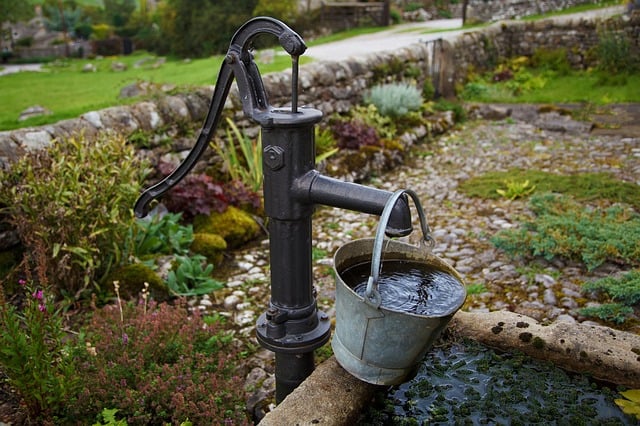
What Causes Well Water to Suddenly Turn Brown?
Iron and manganese, rust, silt, tannins, and the well itself can be the cause of why well water suddenly turns brown. While water discoloration can be a problem, there is no need to immediately hire the services of a plumber. You can do simple tricks and hacks to help you determine the cause of your well water discoloration.
The first thing that you need to do is to check if the discoloration is only affecting your hot water. If so, the problem can be your water heater. It can be contaminated with rust which causes it to turn brown. Below are some of the common causes why well water turns brown all of a sudden.
Rust
One of the usual causes why well water turns brow is rust. Rust can be the result of piping or plumbing fixtures. If brown or reddish water flows in certain parts of your home but the water that comes from outlets of other faucets remains clear, rusty pipes can be causing discoloration.
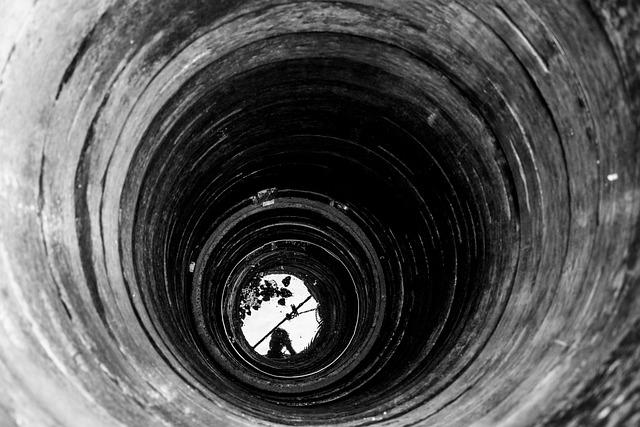
Iron and Manganese
Another cause of brown water is iron and manganese contamination. The iron that comes from rainwater or melting snow that passes through iron-bearing soil can cause the water to turn brown. Moreover, corrosion from water pipes, iron, or steel well casing can cause water discoloration. Iron is usually harmless, but it can affect the smell, and taste of the water.
The Well
If the water pump detaches and hits the side of the well hole, it can affect the water level or supply. If the water turns brown, it can mean that there is a problem with the structure of the well or the water level. See to it that you check the water pump as well as the well for any changes or damage.
Silt
Another reason why well water can turn brown is because of the presence of silt. Silt or also known as sediment should not get into the well water through the pump. On the other hand, if the components of the well get damaged, dissolved solids that come from rainwater may be easily sucked through the pump and into your well.
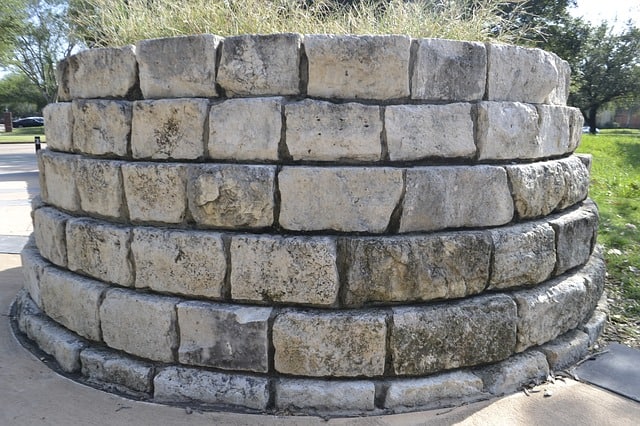
Take note that brown water that is contaminated with silt can cause some risks to your home and your health. Your water pipes can easily get damaged by the silt, sand, and other solids that come from rainwater. Silt in your water is relatively harmless. However, it can be a sign of E. Coli bacteria contamination that can make you sick when you drink it.
Tannins
Tannins are usually found in decaying leaves and peaty soil. When there is no rain, this organic material seeps through the earth and can pass into the well through the aquifer. Rainwater that contains tannins can stain clothes with a yellowish tint. If the well is contaminated with tannins, there is an earthy smell and a tangy aftertaste in the water. Tannins don’t pose a health risk in small amounts. However, they are unpleasant to drink and can be the cause of annoying problems around your home.
How Do I Fix Brown Water in My Well?
Brown well water is such a common problem in many households and there are many solutions to fix this issue. Air injection oxidization, ion exchange, greensand filters, sediment filtration, and reverse osmosis are some of the solutions that you can use. Let us find out more about these solutions below.
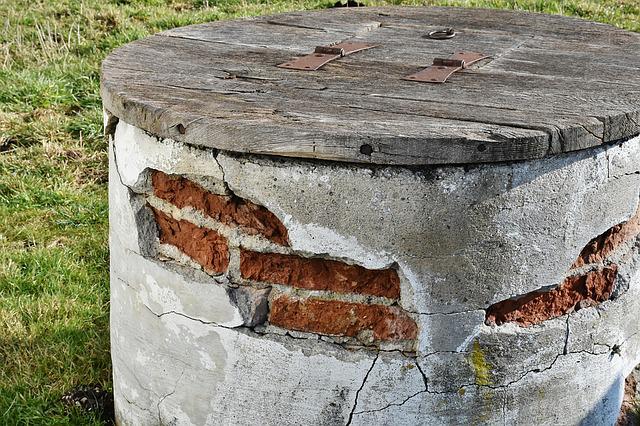
Air Injection Oxidization
This method treats contaminated well water by using oxygen in a pressure tank that contains water. As a result, it will oxidize manganese and iron. It will then cause the oxidized particles to stick to the surface of the media bed. Bear in mind that this solution works well for certain impurities. On the other hand, it is not the best method to use if you want to remove bacteria or tannins from the well.
If you are interested in air injection oxidization, you can check out this PRO+AQUA Whole House Filter System For Well Water. The filtration system can fix iron, hydrogen sulfide, manganese, zinc, copper, lead, uranium, radium, and radionuclides. It has a 3 Micron rating which allows it to also filter sediment, rust, sand, and much more. Check out the link to find out more about the product.
Greensand Filters
For this method, greensand filters are coated with manganese oxide that oxidizes iron and manganese and turns them into solids. These solid impurities sit on the surface of the media bed until they are backwashed away.
You can check out this Pro Products KP02N Pot Perm Plus Greensand Iron Filter Regenerant. Aside from being an iron filter regenerant, it is also an oxidizing agent that converts dissolved iron and manganese to insoluble oxides allowing them to be easily removed through filtration. The product regenerates and oxidizes greensand iron filter media which restores the exchange capacity of the unit.
Sediment Filtration
This method can be used as a sole filter or can also be installed at the beginning of a whole-house water filter system. It is the ideal method to use if you have dirty and discolored water with a sediment problem. Sediment filtration is designed to get rid of dissolved solids such as sand, dirt, dust, and rust.
If you are looking for sediment filtration for your home, you can check out this iSpring WSP-100 Reusable Whole House Spin Down Sediment Water Filter. The water filter can protect your entire plumbing system from sediment, rust, dirt, sand, and large particles. It can also be used for wastewater treatment by spinning down the sediment. The machine can last one to two years.
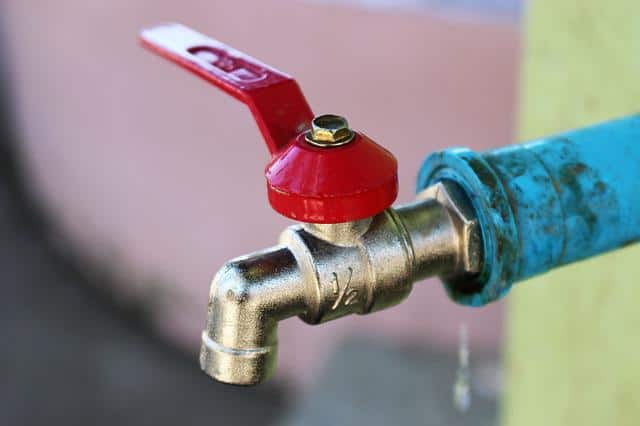
Reverse Osmosis
If you are looking for a highly effective contamination treatment that can get rid of almost 100% of organic material from dirty water, this method is your best choice. The system is installed before the water heater so that it provides your whole house with clean and clear water. You can also install it at your kitchen sink so that you can have access to clean water from your cold water faucet.
iSpring RCC7AK, NSF Certified 75 GPD, 6-Stage Reverse Osmosis System is made to restore the natural alkalinity and mineral balance of water. This system is reliable, safe to use, and can convert your water into clean, pure, and healthy drinking water. It is easy to install and all of the necessary parts are included in the package. Check out the product to learn more about it.
Pipe Replacement
Replacing rusty pipes in your home will effectively remove brown water. It is the best way to do it if the cause of the problem is rusty pipes. On the other hand, this is often a big task and should only be done by expert plumbers. Moreover, it can also be expensive depending on the pipes that need to be changed and the work that needs to be done. You can also check out this article that we have shared titled, does rain fill your well? We have shared an in-depth discussion about how rainfall affects your well water supply.
✅ Video – How to Fix Your Water – Yellow or Brown Water (Tannin)
US Water Systems shared the video below on YouTube. It discusses how to fix brown or yellow water in your home. In the video, Mark Timmons who is a water doctor discusses how to get rid of brown water. Check out the video for more tips and information.
Is Discolored Water Safe to Drink?
If you have discolored water flowing from your faucet, it is best not to drink it just to be on the safe side. Most of the time, naturally occurring minerals are the cause of discolored water and these are generally harmless. They can be unappealing and can have a strange taste and smell. It is best not to drink discolored water because they are contaminated and you do not know what bacteria and other things are in there.
Is Brown Water Dangerous or Harmful?
In general, brown water is not dangerous or harmful and will not pose a serious health concern. On the other hand, they can be an inconvenience and can damage your clothes and water fixtures. Usually, brown water is caused by too much iron content. Iron is a natural metal in soil and is also present in your drinking water, but they are in much lower quantities. However, it is best not to drink brown water for the simple reason that they taste and smell bad.
Is it OK to Shower in Brown Water?
It is ok to use brown water for your shower. But take note that it is not a pleasant experience. Also, if you have sensitive skin, the minerals from the brown water can cause allergies and rashes. We have shared this article that discusses why submersible pumps fail. You can check out the article to learn about the different reasons that cause submersible pump failure.
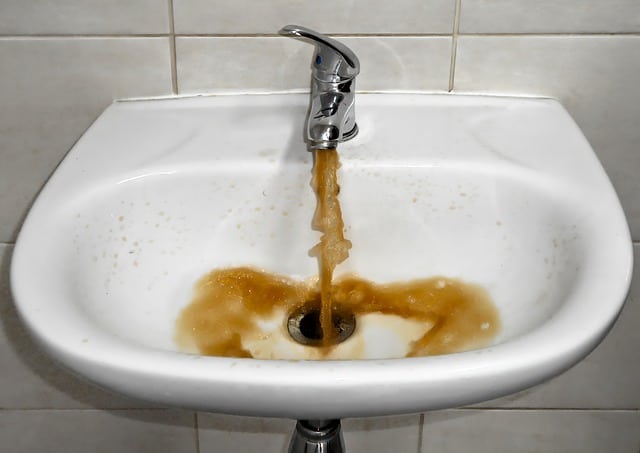
Brown Well Water after Heavy Rain
When it rains, the water from the surface can flow to your water well which can be contaminated with bacteria. This can be the result if the water that is filtered by the soil quickly saturates the ground without getting properly filtered. On the other hand, surface infiltration mostly happens when there is damage or deterioration to the seal, casing, or well pump. You can also check out this article that we have shared titled, at what depth submersible pump should be installed? We have shared an in-depth discussion about the topic.
What Does Brown Tap Water Mean?
Brown tap water can mean that water has been collected and remained in iron pipes for too long and causes iron water. If you have an old pipe, then it means that rust has accumulated on it. Manganese is iron water that causes brown tints to water and makes it taste bitter.
Should You Use Brown Well Water?
You should avoid using brown well water, especially for drinking because it is not good for your health. Brown water stains everything that it gets in contact with such as the sink, toilet, bathtubs, and your clothes. This water is not also good for watering plants because it can stain them.
Do You Need Well Inspection to Get Rid of Brown Water?
Well inspection can help get rid of brown water. It is recommended that you have your well inspected annually. Moreover, if you live in colder areas, make sure to have your well inspected during the summer. Through inspection, you can determine if there is a change in color on your water, if you are experiencing a drop in water pressure, or if the well water is still safe to use.
Why is it Important to Have Your Well Water Tested?
It is important to have your well water tested to find out the issues that it is dealing with if there are any, and how to solve the issue. The pH, iron concentration, iron bacteria, and dissolved solids are some of the things that should be tested in your well water. Aside from that, you also need to do tests for e-coli bacteria and fecal coliform. Once your well water has been tested, the results will determine the type of water treatment that you need to do.
Testing your water is important to make sure that it is clean and safe to drink. If you want to check your water, you can use a water quality tester. To achieve high accuracy, the water tester is equipped with a premium quality titanium alloy probe and reliable Automatic Temperature Compensation. This is to make sure that the reading is accurate.
Why is the Water in My Toilet Brown?
There are many reasons why the water in your toiler is brown which include a piping problem, iron in water, or dirty brown well water. If your well is damaged, it can also be the reason for the brown color of your toilet. The disclosed water can contain sediment and is not safe to use.
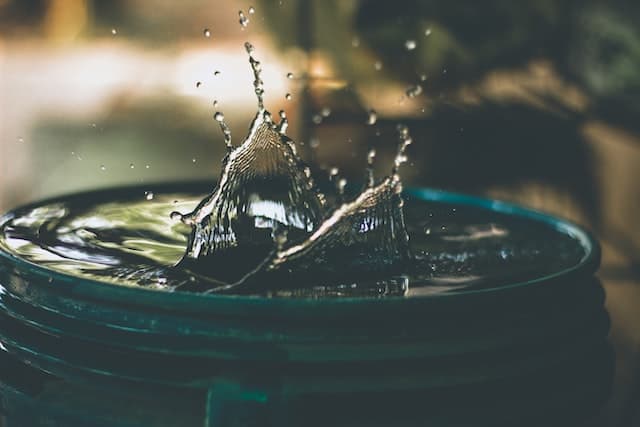
Well Water Turning brown During Low Pressure
Well water turning brown during low pressure is a common issue and this can be because the water is being forced through a sediment filter. The filters are the ones responsible for removing particles from the water. During low pressure, the particles can cause the water to turn brown. This can be avoided by making sure that your water pressure is above 25psi.
Does Brown Well Water Have a Bad Smell?
Brown well water can have a bad smell. Most of the time, you will notice a musty or earthy smell in the water. This is a common issue, especially in areas with shallow groundwater levels. Take note that the water from the surface is less pure as compared to groundwater. Hence, it can contain organic material and minerals which turns the water brown.
Conclusion
You have reached the end of this article that discusses the reasons why well water turns brown all of a sudden. If you have water discoloration, do a water test so you will find out what causes the discolored water. The test results will also allow you to choose the best solution for the issue that you have at hand. Thank you for reading!
